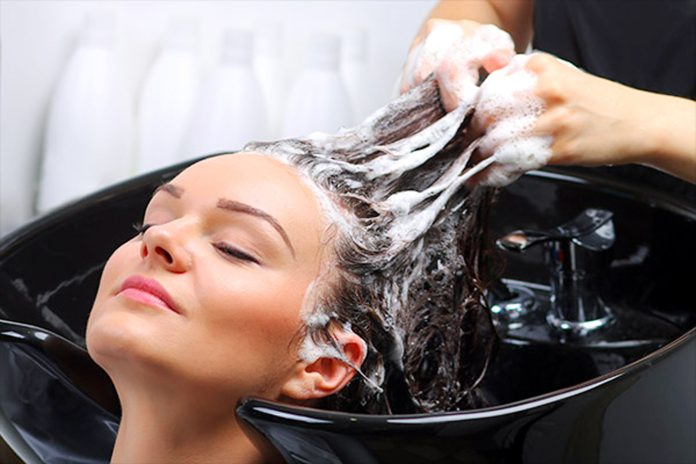Shahnaz Husain
Many people want supple, shiny, strong, and healthy hair, especially young women. But healthy hair doesn’t happen by magic. Achieving and maintaining healthy hair can be harder than you think.
While our genetics play the biggest role, many factors including age, overall health, environmental exposure, medications, and diet are all critical to getting healthy hair and keeping it.
There are a lot of reasons you should care about your hair – and want to keep it healthy – in addition to looking good.
If your hair and scalp are unhealthy, it can lead to itching, inflammation, and untreated chronic skin conditions like eczema, seborrheic dermatitis, and alopecia.
While there isn’t a secret shortcut to healthier hair, taking time to keep strands strong is worth the commitment. With small tweaks to your routine, maintaining great hair can be effortless.
Incorporate natural oils into your hair care routine to provide an extra layer of protection and hydration.
Sesame oil, argan oil, coconut oil, and jojoba oil are excellent choices. Have hot oil therapy once a
week. Heat oil and apply on the hair. If the hair is dry and damaged, pure coconut oil or pure almond
oil may be applied. Using your fingertips massage the scalp gently, actually moving the scalp in
circular motions. This helps to improve blood circulation to the follicles. Then do the hot towel wrap.
Apply Hair Mask
Curry leaves are said to contain nutritive elements, including antioxidants, which bring back health to
the roots and promote hair growth. Curry leaves contain beta-carotene, which is converted into vitamin
A. This vitamin helps in the production of sebum, the natural oil that keeps the scalp and hair roots moisturized. A well-moisturized scalp is conducive to hair growth.
Make a paste of curry leaves, one tablespoon of honey, and coconut oil and apply to the hair. Wash off after half an hour.
Rinse with Milk
After your shampoo, rinse the hair with milk and leave it on for 5 minutes. Then rinse off with plain water. It would help to add body and shine to the hair. For extremely dry hair, add a little milk to egg yolk and apply on the hair half an hour before shampoo. This is a wonderful nourishing treatment for dry hair. The hair looks soft, smooth, and shiny.
Egg Hair Mask for Damaged Hair
The B vitamins in eggs, including Biotin (B7) and Niacin (B3), play a significant role in promoting hair growth. The natural oils present in eggs help moisturize the hair, providing a natural shine and luster. The proteins in eggs can help repair damaged hair by filling in gaps and cracks along the hair shaft. Eggs can act as a natural conditioner, providing moisture to dry and damaged hair. Apply egg white on the hair for 15 minutes. If you have dry or brittle hair, use egg whites to moisturize your hair. Use ½ cup of any egg mixture (egg white, entire egg) and apply to clean, damp hair. Leave it for 20 minutes and with cool water. Try this one of the most effective beauty tips for hair and notice the change,Apply Apple Cider Vinegar
The natural PH of the scalp is slightly acidic, and commercial shampoos can sometimes disrupt this balance. Apple cider vinegar, with its acidic nature, helps to restore the PH level of the scalp. A balanced PH contributes to a healthier scalp and can enhance the overall condition of your hair. Apple cider vinegar has natural antibacterial and antifungal properties, making it effective in combating dandruff and alleviating an itchy scalp. Regular use of ACV can help maintain a healthy scalp environment and reduce the occurrence of dandruff. The shampoo helps to reduce oiliness and add body to the hair.
Shampooing your hair removes dirt and oils, but over-shampooing can strip natural oils from your hair and scalp. Plus, shampoo that isn’t rinsed out fully can build up on your hair, leaving it looking dull and lifeless.
When washing your hair, concentrate on cleaning primarily the scalp, rather than washing the entire length of hair. Washing only your hair can create flyaway hair that is dull and coarse.
Balance of your hair and add shine.
Try to avoid shampoos with harsh ingredients, such as ammonium lauryl sulfate or sodium lauryl sulfate. And remember, cost doesn’t necessarily indicate the quality of a product.
Try to get a trim at least every 8 weeks, but push it to 10 or 12 if you don’t want to be in the salon so often.
Regular haircuts help avoid damage from the ends up – split ends run up the shaft and weaken the hair, exposing it to moisture loss and tangles. Always opt for a cut every six to eight weeks to prevent damage. If you have bangs, you might need to get them trimmed every 3 weeks so they don’t cover your eyes
The same goes for people who are trying to grow out their hair. If you’re looking to grow your hair, you might be considering skipping a trim – but reshaping and trimming your hair regularly keeps it looking strong and healthy, as opposed to brittle and thin, while you move through the growing process.
Trending Now
E-Paper


